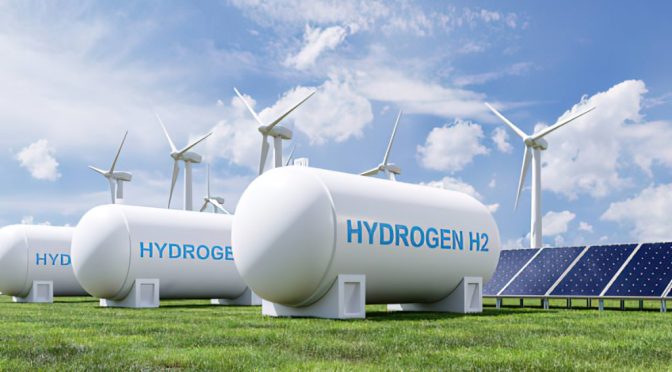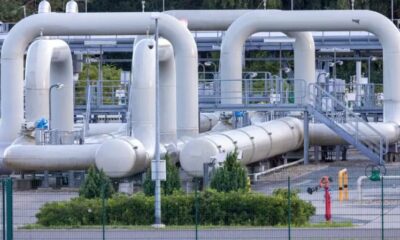Business
Mediterranean hydrogen pipeline project will include Germany

The Franco-German declaration made on Sunday, the 60th anniversary of the Elysee Treaty, states that Germany will join a new project to build a hydrogen pipeline between Spain, Portugal, and France.
By 2030, the H2Med project, which will connect Portugal, Spain, France, and now Germany, will supply approximately 10% of the hydrogen demand for the European Union.
Green hydrogen, produced through electrolysis with renewable energy, will be transported via the pipeline under the Mediterranean Sea.
H2Med is expected to be able to provide approximately two million metric tons of hydrogen annually, according to the Spanish government.
It comes at a time when Europe is rushing to switch from fossil fuels to cleaner energy and reduce its reliance on Russian energy.
Germany and France made a commitment to expanding the production of hydrogen
“Stepping up our investments in the technologies of tomorrow, particularly renewable and low carbon energies,” said German Chancellor Olaf Scholz and French President Emmanuel Macron.
At the end of April 2023, a joint working group comprised of representatives from both nations will issue “recommendations on our strategic choices regarding hydrogen development.”
“We started to talk about a strategy for what we want to do from an energy point of view,” Macron said after hosting Scholz in Paris.
“We want hydrogen to be available in large quantities and at affordable prices as the gas of the future,” Scholz stated.
“This is a technological advance that we can only achieve together. And we have also agreed closely that we want to achieve this together,” Scholz continued.
Germany’s inclusion is welcomed in Spain
The announcement was well-received by Spanish Prime Minister Pedro Sanchez, who tweeted that it “definitely strengthens its pan-European dimension.”
He added a muscle emoji to his message to show his support for European energy sovereignty.
It was anticipated that the pipeline would cost €2.5 billion ($2.6 billion) when Madrid, Paris, and Lisbon agreed in December to construct it. However, the cost increase resulting from Germany’s inclusion was not immediately apparent.
-

 Sports4 weeks ago
Sports4 weeks agoAl Ahly vs Inter Miami, 2025 FIFA Club World Cup – Preview, Prediction, Predicted Lineups and How to Watch
-
Health3 weeks ago
Back to Roots: Ayurveda Offers Natural Cure for Common Hair Woes
-

 Tech3 weeks ago
Tech3 weeks agoFrom Soil to Silicon: The Rise of Agriculture AI and Drone Innovations in 2025
-

 Startup4 weeks ago
Startup4 weeks agoHow Instagram Is Driving Global Social Media Marketing Trends
-

 Science5 days ago
Science5 days agoJuly Full Moon 2025: Everything You Should Need to Know, When and Where to See Buck Moon
-

 Sports3 weeks ago
Sports3 weeks agoFIBA 3×3 World Cup 2025: Full Schedule, Preview, and How to Watch
-

 Gadget3 weeks ago
Gadget3 weeks agoThings to Know about Samsung Galaxy S26: What’s New and What’s Next
-

 Sports4 weeks ago
Sports4 weeks agoWorld Judo Championships 2025: Full Schedule, Date, Time, Key Athletes and How to Watch

















